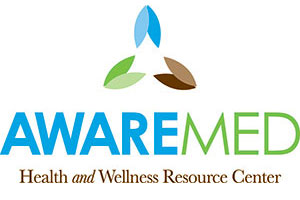Thrush Symptoms & Treatment in Bristol, VA
What Is Thrush?

Candida albicans is a microscopic species of fungus, commonly known as yeast. Your body is host to millions of microorganisms, including yeast and bacteria. Candida overgrowth occurs when the delicate balance of yeast and bacteria in your body becomes unbalanced, and yeast organisms are allowed to multiply unchecked.
Candida overgrowth can occur anywhere in the human body. Oral thrush, or oral candidiasis, is a medical condition characterized by an overgrowth of yeast in the mouth. Sometimes candida overgrowth can become systemic—involving multiple areas of the body in addition to the mouth.
Oral thrush occurs most frequently in infants and toddlers but can occur at any age. Children are at high risk for contracting thrush simply because their immune systems are still developing. Children using steroids or frequent antibiotics are even more likely to develop the condition. Thrush is also commonly seen among the elderly, people with compromised immune systems, or people with diseases like cancer or AIDS.
Untreated fungal infections can lead to serious, invasive candidiasis. Thrush can be treated easily with antifungal medications, and recurrences can be prevented with modifications to diet and lifestyle. If you believe you or your child are experiencing thrush symptoms, schedule a consultation with a healthcare practitioner in Bristol who specializes in thrush treatment. Call (423) 482-8711 or contact Dr. Dalal Akoury online.
Oral Thrush Causes
Candida overgrowth in any area of your body can be triggered by multiple factors, including:
- Compromised immune system
- Disease states like cancer or AIDS
- High blood sugar levels due to high sugar intake or poor blood sugar control due to diabetes
- Hormonal shifts or changes in hormonal balance
- Use of antibiotics or any substances that kill healthy bacteria in the body and cause an imbalance in the ratio of healthy bacteria to yeast
- Use of steroid medications (including asthma inhalers) that compromise immune function
- Pregnancy or use of birth control pills
- Recent organ transplant
- Dentures, especially ill-fitting dentures
- Dry mouth (often caused by medication)
- Poor diet or malnutrition
- Sleep irregularities or lack of sleep
- Stress
- Newborns being exposed to vaginal yeast during vaginal birth
Thrush, in particular, is more likely when there is disruption of the balance of microorganisms in the mouth, which can occur with the use of corticosteroid inhalers, cigarettes, or medications that cause dry mouth. Ill-fitting dentures and excessive consumption of sugary food and drink also increase your risk.
Oral Thrush Symptoms & Diagnosis
The most common symptom of oral thrush is the presence of white patches or lesions called plaques seen on the tongue or other mucous membranes of the mouth and throat. Other oral thrush symptoms include:
- Pain or difficulty when swallowing
- Soreness or redness in areas of the mouth infected with thrush
- Cracking or accumulated moisture in corners of mouth
If thrush begins to spread into the throat or esophagus, the following symptoms may occur:
- Sensation of food stuck in throat or esophagus
- Fever
The thrush plaques or lesions sometimes develop a curd-like appearance of cottage cheese. When scraped, removing the white layer on the surface, the underlying tissue is usually red, painful and may bleed.
A thrush diagnosis is made by physical examination of the symptoms and sometimes a scraping viewed under a microscope. If oral thrush begins to spread, a throat culture or endoscopy may be required.
Oral Thrush Treatment
Receiving prompt thrush treatment is important as untreated thrush weakens the immune system and could cause more serious illness to occur. Topical antifungal medications are often prescribed as the first line of oral thrush treatment. Clotrimazole troches and nystatin suspension (nystatin “swish and swallow”) are examples. Systemic antifungal medications may become necessary for infections that do not respond to the topical treatments. Oral candidiasis can spread to the esophagus, resulting in candida esophagitis, which may require oral or intravenous fluconazole or oral itraconazole. Resistant infections may require amphotericin B.
The following thrush preventions steps are often recommended during and after treatment:
- Ensure good oral hygiene practices like brushing, flossing, and regular dental care
- Avoid mouthwash or mouth spray that kills bacteria in the mouth
- Avoid sweetened drinks and food items
- Quit smoking
With or without antifungal medication, it is also important to address the underlying factors which allowed candida to overgrow. Without addressing the root cause, the medications will only treat the symptoms, and the chance of recurrence is high if candida continues to flourish. Natural thrush treatment will likely utilize therapies focused on strengthening the immune system and require adhering to an anti-candida diet .
When dealing with thrush or any candida overgrowth, it is prudent that you seek the guidance of an experienced healthcare provider to diagnose and treat your condition properly. Request more information today about treatment options for thrush in adults and children. Call (423) 482-8711 or contact Dr. Dalal Akoury online.
AWAREmed Health and Wellness Resource Center
Address
1604 Lamons LaneSuite 202
Johnson City, TN 37604
(423) 482-8711
www.awaremed.com
Hours
Mon:
9:00 am - 5:00 pm
Tue:
9:00 am - 5:00 pm
Wed:
9:00 am - 5:00 pm
Thu:
9:00 am - 5:00 pm
Fri:
9:00 am - 5:00 pm


